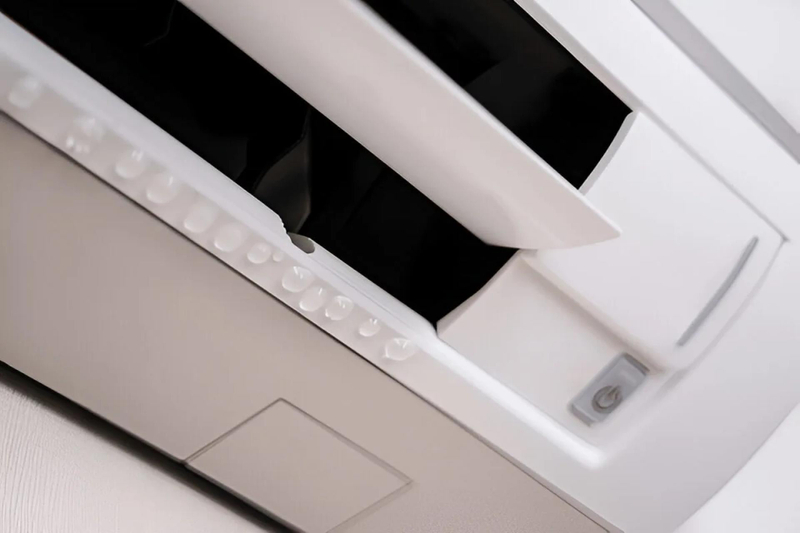There's nothing quite as unsettling as discovering a puddle under your air conditioner. In Clearwater's humid climate, your HVAC system works tirelessly to keep your home cool and comfortable. So, when you spot that dreaded AC drip, it's natural to feel a mix of frustration and concern. "Why is my AC leaking water?" is a common question, and understanding the causes is the first step towards a solution.
Let's dive into why your AC might be dripping and when it's time to call for expert HVAC Repair Clearwater.
Why is My AC Leaking Water? (Common Causes)
While a drip might seem minor, it's often a symptom of a larger issue. Here are the most frequent culprits:
- Clogged Condensate Drain Line: This is by far the most common reason for water leaks. Your AC system removes humidity from the air, and this moisture collects in a drain pan and exits through a condensate drain line. Over time, algae, mold, or debris can clog this line, causing the water to back up and overflow.
- Frozen Evaporator Coil: If your air filter is dirty, airflow over the evaporator coil can be restricted. This restriction causes the coil to get too cold and freeze, forming ice. When the ice melts, it creates an excessive amount of water that the drain pan can't handle, leading to an overflow.
- Cracked or Rusted Drain Pan: Over many years of service, the condensate drain pan (which catches the water from the evaporator coil) can rust through or crack. If this happens, water will simply drip right through it.
- Dirty Air Filter: We mentioned this with frozen coils, but a severely clogged air filter on its own can reduce airflow so dramatically that it impacts the system's ability to properly drain condensation, leading to issues.
- Faulty Condensate Pump: If your indoor unit is in a location where gravity can't drain the condensate, a pump is used to push the water out. If this pump malfunctions or gets clogged, water will back up and leak.
- Improper Installation: In rare cases, a new AC unit might leak due to incorrect installation, such as an improperly sloped drain line or unsecured connections.
What You Can (Safely) Check First
Before you pick up the phone, there are a couple of things you can safely check:
- Check Your Air Filter: Is it dirty? A clogged filter is an easy fix that can prevent many problems. Replace it if it looks grimy.
- Look for Ice: Carefully check the indoor evaporator coil (often located above your furnace) for ice formation. If you see ice, turn off your AC and let it thaw out completely (which can take several hours). This might temporarily stop the leak, but it doesn't address the root cause of the freezing.
When to Call the Pros for "HVAC Repair Clearwater"
While a simple filter change or thawing coil might offer a temporary reprieve, most AC leaks require professional attention. Here's when to call the experts:
- Persistent Leaks: If the leak returns after your initial checks.
- No Obvious Cause: You've checked the filter and for ice, and still can't identify the problem.
- Visible Damage: You see a cracked drain pan or widespread mold in the drain line.
- Frozen Coils Recur: If your coil keeps freezing, there's an underlying issue with airflow or refrigerant.
- You're Unsure: When in doubt, it's always best to consult a professional. HVAC systems are complex, and improper DIY fixes can lead to more costly damage.
The Importance of Professional Service
For reliable HVAC Repair Clearwater, you need a team that understands the unique challenges of our local climate. Professionals have the diagnostic tools and expertise to quickly identify the exact cause of your AC leak, whether it's a simple condensate line clog or a more complex refrigerant issue.
Services like those offered by 1st Call Air not only fix the immediate problem but also ensure your system is running efficiently and safely. They can handle specific issues like AC Repair Service Clearwater FL, Heat Pump Repair Clearwater, and even Duct Work Replacement & Repair which might be contributing to airflow problems causing leaks.
Don't Let a Drip Become a Disaster!
Ignoring an AC leak can lead to significant problems down the line, including water damage to your ceilings, walls, and flooring, as well as the growth of mold and mildew, which can pose health risks.
If your AC unit is dripping, don't delay. For prompt and reliable HVAC Repair Clearwater, trust the local experts to get your system back in top shape.
Ready to stop the drip? Contact 1st Call Air today for expert HVAC repair in Clearwater!


